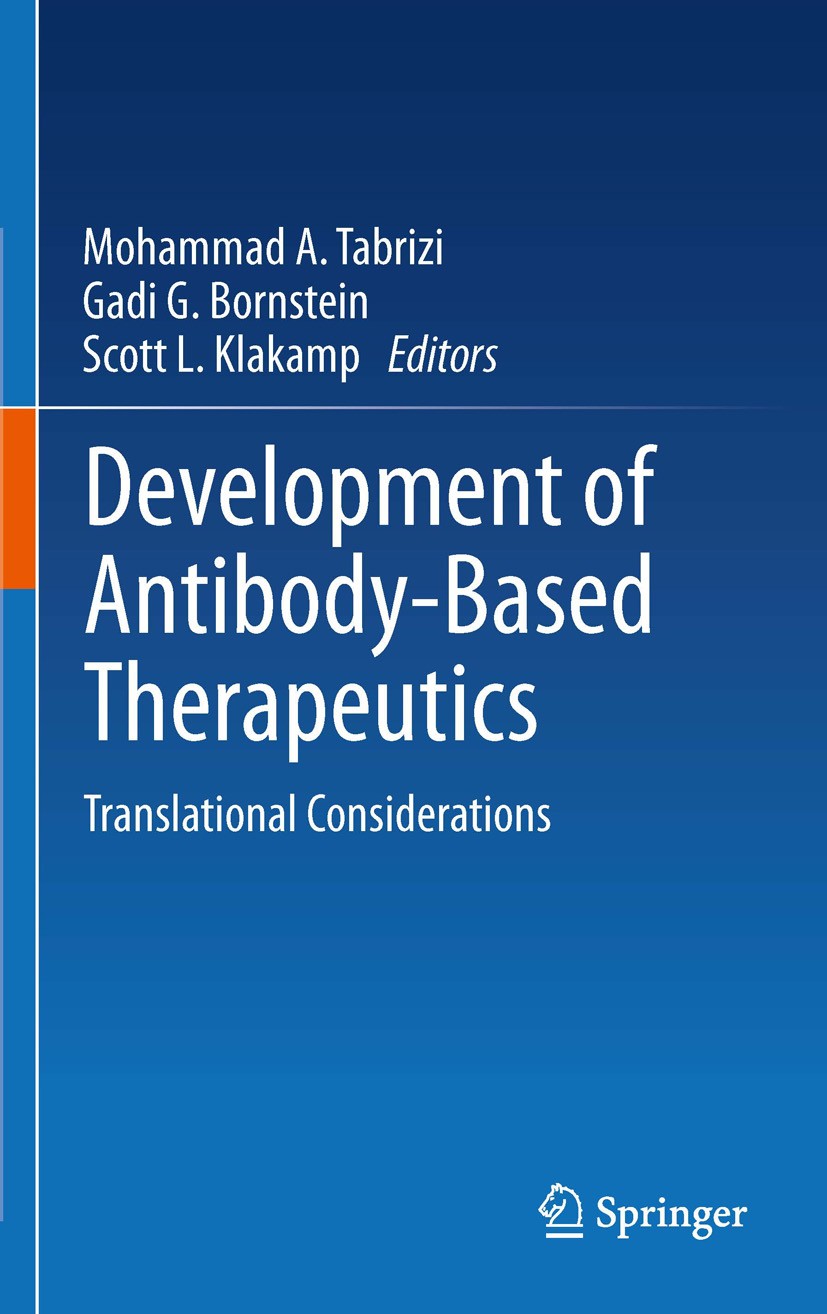| 书目名称 | Development of Antibody-Based Therapeutics | | 副标题 | Translational Consid | | 编辑 | Mohammad A. Tabrizi,Gadi G. Bornstein,Scott L. Kla | | 视频video | http://file.papertrans.cn/270/269952/269952.mp4 | | 概述 | Examines important considerations necessary for the design of effective translational strategies during the development of antibody-based therapeutics.Improves the understanding of generation and engi | | 图书封面 |  | | 描述 | Translational strategies for development of antibody-based therapeutics should allow understanding of the relationship between the ‘unit dose’ and ‘unit effect’ with respect to both beneficial and deleterious effects from early stages of development. The flow of information from later to earlier stages of development should provide opportunities to facilitate selection of more effective novel and next-generation drug candidates. Selection and evaluation of relevant biomarkers in early preclinical development in "relevant" animal models should allow for identifying potential risks to humans and establishing safe First-In-Human (FIH) dosing strategies. Hence, integration of knowledge with respect to target antigen properties such as antigen distribution, expression profile, kinetic properties, target pharmacology, antigen isoforms and pharmacological redundancy in health and disease, as well as antibody design criteria, such as antibody isotype, affinity, PK/PD and safety is a critical necessity for the design of effective translational strategies. Additionally, these factors will further offer critical differentiating characteristics for next-generation antibodies, and novel technol | | 出版日期 | Book 20121st edition | | 关键词 | Antibody; Antibody-Based; Bornstein; Considerations; Development; Klakamp; Tabrizi; Therepeutic; Translation | | 版次 | 1 | | doi | https://doi.org/10.1007/978-1-4419-5955-3 | | isbn_softcover | 978-1-4899-9113-3 | | isbn_ebook | 978-1-4419-5955-3 | | copyright | Springer Science+Business Media, LLC, part of Springer Nature 2012 |
The information of publication is updating

|
|
 |Archiver|手机版|小黑屋|
派博传思国际
( 京公网安备110108008328)
GMT+8, 2025-12-20 08:54
|Archiver|手机版|小黑屋|
派博传思国际
( 京公网安备110108008328)
GMT+8, 2025-12-20 08:54


